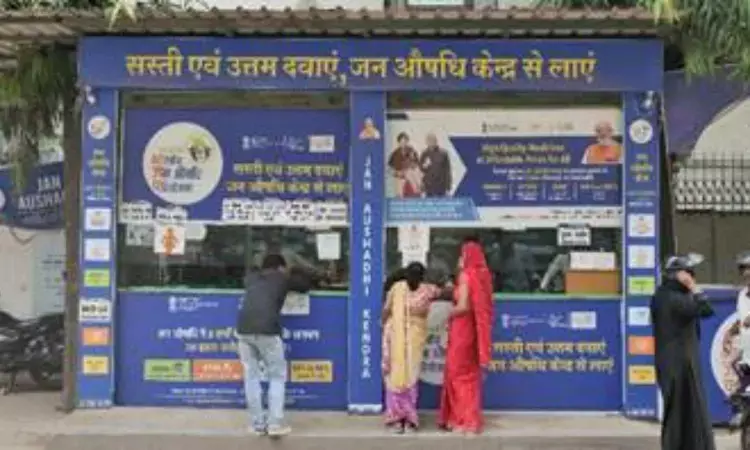- Home
- Medical news & Guidelines
- Anesthesiology
- Cardiology and CTVS
- Critical Care
- Dentistry
- Dermatology
- Diabetes and Endocrinology
- ENT
- Gastroenterology
- Medicine
- Nephrology
- Neurology
- Obstretics-Gynaecology
- Oncology
- Ophthalmology
- Orthopaedics
- Pediatrics-Neonatology
- Psychiatry
- Pulmonology
- Radiology
- Surgery
- Urology
- Laboratory Medicine
- Diet
- Nursing
- Paramedical
- Physiotherapy
- Health news
- Fact Check
- Bone Health Fact Check
- Brain Health Fact Check
- Cancer Related Fact Check
- Child Care Fact Check
- Dental and oral health fact check
- Diabetes and metabolic health fact check
- Diet and Nutrition Fact Check
- Eye and ENT Care Fact Check
- Fitness fact check
- Gut health fact check
- Heart health fact check
- Kidney health fact check
- Medical education fact check
- Men's health fact check
- Respiratory fact check
- Skin and hair care fact check
- Vaccine and Immunization fact check
- Women's health fact check
- AYUSH
- State News
- Andaman and Nicobar Islands
- Andhra Pradesh
- Arunachal Pradesh
- Assam
- Bihar
- Chandigarh
- Chattisgarh
- Dadra and Nagar Haveli
- Daman and Diu
- Delhi
- Goa
- Gujarat
- Haryana
- Himachal Pradesh
- Jammu & Kashmir
- Jharkhand
- Karnataka
- Kerala
- Ladakh
- Lakshadweep
- Madhya Pradesh
- Maharashtra
- Manipur
- Meghalaya
- Mizoram
- Nagaland
- Odisha
- Puducherry
- Punjab
- Rajasthan
- Sikkim
- Tamil Nadu
- Telangana
- Tripura
- Uttar Pradesh
- Uttrakhand
- West Bengal
- Medical Education
- Industry
Panel Pushes for Inclusion of Life-Saving Drugs like Benzylpenicillin, Streptomycin in Jan Aushadhi Scheme to Fill Critical Gaps

Jan Aushadhi Kendras Can Continue in Govt Hospitals, Rules Karnataka High Court
New Delhi: The Jan Aushadhi Scheme, a crucial initiative under the Pradhan Mantri Bhartiya Janaushadhi Pariyojana (PMBJP), has made significant progress in increasing access to affordable medicines across India, particularly in rural and remote areas. However, a recent report from a Parliamentary Committee has highlighted gaps in the availability of essential medicines and called for the expansion of the drug basket to address the growing healthcare needs of the population.
In its fifth report on the Demands for Grants of the DoP for the fiscal year 2024-25 submitted in the Lok Sabha during the recently concluded session, the Parliamentary Standing Committee noted that while the scheme has seen substantial success, with over 14,000 Jan Aushadhi Kendras (JAKs) operating across 773 districts, critical medications for treating diseases like tuberculosis and mental illnesses are still missing from the PMBJP’s product offerings. The report specifically pointed to the absence of life-saving injections like Benzylpenicillin, Streptomycin, and important treatments for tuberculosis.
According to the Committee, "important medicines/injections like Benzylpenicillin, Atropine, Streptomycin, used for treatment of tuberculosis, mental ailments, are not available at JAKs," adding that "only Atropine Sulphate injection is procured as per demand and supplied to selected JAKs." The report further clarified that while tuberculosis medicines are provided under a separate government program, they are not part of the PMBJP basket.
In response to this gap, the Committee has recommended that feasibility studies be conducted to explore the inclusion of these critical medications in the PMBJP drug list. The Committee believes that this move would make JAKs a more comprehensive healthcare hub, providing a one-stop solution for all kinds of essential medicines, especially for those living in underserved areas.
PMBI, the implementing agency for PMBJP, has made efforts to ensure the quality of medicines by procuring drugs from WHO-GMP certified suppliers, and each batch undergoes rigorous testing at NABL-accredited labs. However, the Committee stressed that, despite these measures, there is still a need for more stringent checks to avoid the sale of expired or substandard medicines at JAKs. The report noted, “It is the duty of the PMBI and the Department to ensure stoppage of expired or duplicate/substandard medicines at JAKs and it should not be left in the hands of only the JAKs.” As a result, the Committee recommended that PMBI and the Department take more stringent actions to eliminate these malpractices and ensure quality control across all JAKs.
To address concerns about the quality of medicines, PMBI has launched the "Janaushadhi Sugam" mobile application. This app helps users locate nearby JAKs, compare prices of generic and branded medicines, and search for specific medicines. The app is seen as a step toward increasing transparency and accessibility in the Jan Aushadhi network, although the Committee has called for enhanced measures to prevent the sale of expired or counterfeit drugs.
Moreover, the Committee has also raised concerns about the pending applications for opening new Jan Aushadhi Kendras. As of October 2024, over 3,000 applications were still under review, and 496 applications were yet to be processed. The Committee urged that these applications be addressed promptly to ensure that more JAKs are set up in underserved areas, thus expanding the reach of affordable medicines.
While the Jan Aushadhi Scheme has made significant strides in providing affordable generic medicines, the Committee has called for further expansion and inclusivity, particularly in the area of essential life-saving drugs. The report's recommendations focus on the urgent need for a broader medicine basket, enhanced quality checks, and the timely establishment of JAKs to address gaps in access to healthcare for all. These steps, the Committee believes, will help transform the PMBJP into a more robust and comprehensive healthcare solution for India's population.
Farhat Nasim joined Medical Dialogue an Editor for the Business Section in 2017. She Covers all the updates in the Pharmaceutical field, Policy, Insurance, Business Healthcare, Medical News, Health News, Pharma News, Healthcare and Investment. She is a graduate of St.Xavier’s College Ranchi. She can be contacted at editorial@medicaldialogues.in Contact no. 011-43720751


